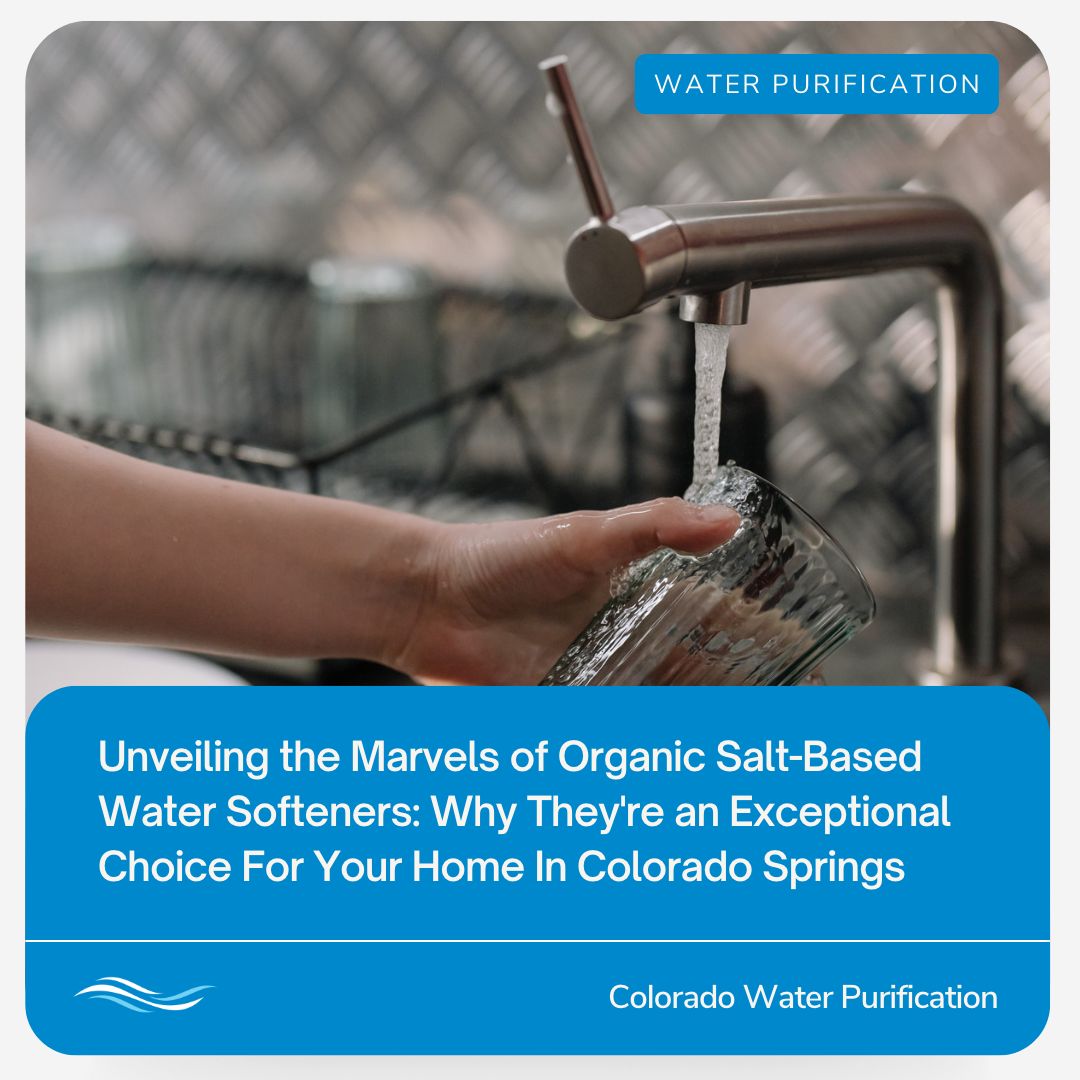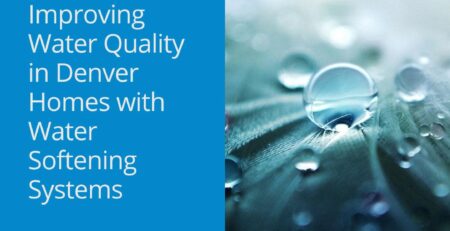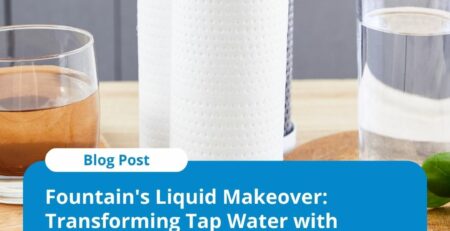Unveiling the Marvels of Organic Salt-Based Water Softeners: Why They’re an Exceptional Choice For Your Home In Colorado Springs
Are you looking for an alternative to the traditional water softener options? Do you want something that’s natural, yet effective and efficient in giving your home a steady supply of softened water? Well look no further than organic salt-based water softeners! These incredible systems provide plenty of advantages that make them a great choice for any household. In this blog post, we will be discussing all the upsides associated with installing an organic salt-based water softener system so that you can make an informed decision about what kind of water softer system is right for you. We’ll also discuss the workflows involved, detailing their capabilities and special features. Read on to discover why organic salt-based water softeners are slowly becoming one of today’s most popular choices!
Overview of organic salt-based water softeners and their benefits
Water softeners are a great investment for any homeowner looking to improve the quality of their water. Traditional salt-based water softeners have been around for decades, but now, organic salt-based water softeners are gaining popularity due to their many benefits. These systems use naturally occurring minerals, like potassium chloride, instead of sodium chloride, to convert hard water minerals into a soluble state. This makes them a more environmentally friendly alternative to traditional salt-based water softeners, as they produce less wastewater and don’t add excessive amounts of sodium to the water supply. Additionally, organic salt-based water softeners require less maintenance and are gentler on skin and hair, making them a top choice for families with allergies or sensitive skin. Overall, organic salt-based water softeners are a smart choice for anyone looking to improve the quality of their water and reduce their environmental impact.
Advantages of using organic salt-based water softeners over other types of water softeners
Organic salt-based water softeners offer numerous benefits over other types of water softeners. For one, they’re environmentally friendly and use natural ingredients that don’t cause harm to the environment. Additionally, organic salt-based water softeners don’t leave any salt residue, making them perfect for people who suffer from allergic reactions to salt. They’re also very efficient at reducing hard minerals and heavy metals in water and preventing the formation of limescale buildup in pipes and appliances. If you’re looking for a water softener that’s effective and eco-friendly, then organic salt-based water softeners are definitely worth considering.
How organic salt-based water softener works and its installation process
Hard water can be a nuisance for any homeowner. Not only can it leave unsightly stains on your fixtures, but it can also damage your plumbing over time. Fortunately, there’s a solution to combat hard water, and that’s through a salt-based water softener. So how does it work? Essentially, this technology replaces hard minerals like calcium and magnesium with sodium ions through a process called ion exchange. This softens the water and prevents future buildup. The installation process can vary, but generally involves attaching the system to your home’s water supply. With a water softener, you can say goodbye to the hassles of hard water and enjoy cleaner, smoother water throughout your home.
Maintenance requirements for an organic salt-based water softener
Maintaining an organic salt-based water softener is crucial to ensure that it functions effectively. It is recommended that the salt tank is checked regularly and refilled as needed to prevent the buildup of minerals in your home’s water. Additionally, the brine tank should be cleaned periodically to prevent any formation of salt bridges, which can disrupt the regeneration process. It’s also important to replace any damaged or worn-out parts in the water softener to ensure proper functioning. Regular maintenance and care will not only prolong the life of the equipment, but it will also guarantee optimal performance and improved efficiency of your home’s water system.
Cost comparison between organic salt-based water softeners, traditional salt based water softeners, and other alternatives
When it comes to choosing a water softener, there are a lot of options out there. Two of the most common options are traditional salt-based water softeners and their organic counterparts. Although organic options may seem more appealing for health and environmental reasons, they can come with a higher price tag. However, there are other alternatives available that may be more affordable and still effectively soften your water. It’s important to do your research and compare the costs and benefits of each option to determine which one is the best fit for you and your budget.
Tips to keep your organic salt-based water softener in top shape
If you’ve invested in an organic salt-based water softener for your home, you already know the benefits it can provide. So, it’s important to keep it in top shape to ensure it continues to function properly. To do this, there are a few things you can do to maintain your water softener. First, make sure to keep an eye on the salt level in your tank and replenish it regularly. Secondly, be sure to clean the resin tank every six months to prevent buildup of hard water minerals. Finally, it’s a good idea to schedule an annual maintenance check with a professional to ensure your water softener is working optimally. By following these tips, you can keep your water softener functioning efficiently for years to come.
In conclusion, organic salt-based water softeners are an excellent option for anyone looking to have cleaner, softer, and healthier water that is free from much of the hardness caused by traditional salt-softeners. The use of organic salt allows for a more eco-friendly process that helps cut down on the amount of pollution public water systems may accrue over time due to the breakdown of traditional salt. It also means better water for your skin and hair which makes it a great choice for those who are sensitive to its effects. Moreover, with lower installation costs than other types of water softeners, reduced maintenance requirements and its minimal effect on the environment, organic salt-based softeners come out on top as a top choice in water softener technology. If you’re looking to stay ahead of the game in terms of having cleaner, healthier and more eco-friendly water than ever before, then an organic salt-based water softener might be right up your alley!











